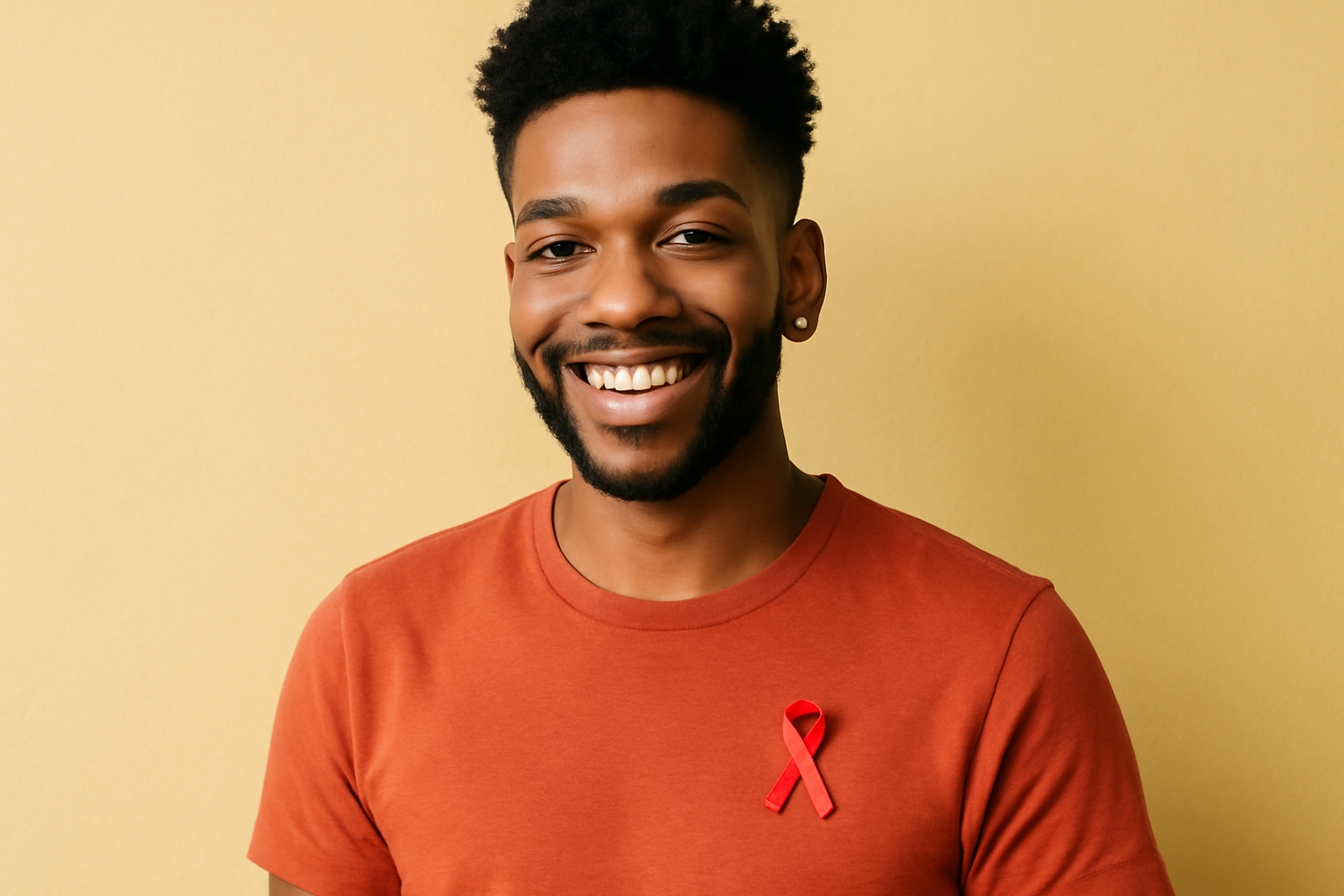
For many, HIV is often perceived as a distant statistic, a concept that exists somewhere on the news, within health reports, or as a narrative in a film. Yet, for those of us living with the virus, especially as Black queer individuals, HIV is a deeply personal and tangible reality. It touches our lives in profound ways, interwoven with our identities and experiences.
Growing up in the early 2000s in the Bible Belt, my first encounter with HIV was more than just an introduction to a disease; it was life-changing. I witnessed the loss of a family member due to AIDS-related complications at a tender age. A few years later, I found myself supporting a dear friend through their darkest moments following an HIV-positive diagnosis, preventing them from making a tragic decision.
The Heavy Burden of Stigma
In my community, the fear of being reduced to a mere number—a statistic shaped by skin color, sexuality, or geography—was palpable. Many around me were too concerned with the societal labels that seemed inevitable if they were ever diagnosed. The isolation, the self-inflicted shame, and the silence surrounding HIV were heart-wrenching to witness. Yet, these experiences instilled in me a new understanding: HIV cannot be hidden away or treated as a family secret. It is a part of our collective reality and must be addressed openly if we aim to dismantle the stigma.
In 2013, my life shifted irrevocably. Three words, "You are positive," echoed in my mind and marked the beginning of a new chapter. Despite the fear and challenges, being diagnosed with HIV gave me a profound sense of purpose. It taught me empathy and self-love, and it strengthened my commitment to advocacy and justice.
Embracing a New Purpose
Through my journey, I have experienced incredible opportunities, such as becoming the Heavy Hitter Pride Ambassador in 2019 and receiving awards from organizations like Houston’s African-American State of Emergency Task Force and The Mahogany Project. Sharing my story with platforms like VICE and attending influential events such as The White House Rising Leaders Summit have been pivotal moments.
As the Deputy Director at The Normal Anomaly Initiative, my work focuses on serving the Black LGBTQ+ community. These platforms amplify my voice, but it is my community and lived experiences that give me the content and strength to continue speaking out.
Beyond Awareness: Taking Action
As we observe National Black HIV/AIDS Awareness Day, coinciding with the start of Black History Month, it's crucial to expand the conversation around HIV beyond statistics. While the numbers are alarming—Black individuals represent 12% of the U.S. population yet account for 40% of new HIV infections—addressing these figures requires more than just awareness campaigns. It demands systematic action to dismantle the inequalities fueling health disparities.
This fight includes confronting systemic racism, homophobia, and stigma. It involves tackling poverty, improving healthcare systems, and increasing educational access in Black communities. We must strive for equity in HIV testing, prevention, and treatment, ensuring that everyone has access to the necessary resources and care.
On this day of awareness, I urge everyone, regardless of race or sexuality, to recognize that HIV affects us all. The battle against this epidemic is a shared responsibility and requires a collective effort—one built on courage, dialogue, and the creation of systems that prioritize humanity.
Moving Forward Together
If you are living with HIV, remember that you are not alone and are not defined by your diagnosis. Take each moment as it comes, and lean on the community for support. For allies and advocates, continue the fight and keep the conversation alive.
To create meaningful change, we must ensure our stories are heard—not as mere statistics but as personal narratives of resilience, empathy, and courage. As storytellers and change-makers, we must disrupt the status quo and build a future where every individual's worth is recognized and celebrated.
Join us in this ongoing dialogue by subscribing to our newsletter and staying informed about the latest developments shaping LGBTQ+ communities worldwide.
Related Posts
Pride Month in Latin America: Protests and Demands for Equality
**Celebrating Pride and advocating LGBTQ+ rights in Latin America** Pride Month in Latin America was a lively mix where celebration met activism. Communities united, not just throwing a party but making a stand—demanding equality and pushing governments toward better protection and rights recognition. Throughout Latin America, pride events erupted in marches and cultural displays, each with a c [...]
Transgender Erasure Actions Implemented by National Park Service
```html Trump administration's impact on national park service and transgender recognition The Trump administration made notable moves in undermining transgender representation, which included directing agencies like National Park Service not include "T" and "Q" when they refered “LGBTQ” in any official communication. This move seems part a broader plan by this administration aimed at reducin [...]
Drag Night Extravaganza: Daddies & Baddies at Atlantic City's Anchor Rock Club
Atlantic City, NJ, isn't just about its casinos and boardwalk—it's a hub bursting with energy and entertainment. One event that truly captures this spirit? The "Daddies & Baddies" drag night at Anchor Rock Club. This vibrant night celebrates amateur drag in all its glory, offering a kaleidoscope display where creativity and community unite. If you're looking where inclusivity and creativity take [...]